Indexed In
- RefSeek
- Hamdard University
- EBSCO A-Z
- OCLC- WorldCat
- SWB online catalog
- Publons
- International committee of medical journals editors (ICMJE)
- Geneva Foundation for Medical Education and Research
Useful Links
Share This Page
Open Access Journals
- Agri and Aquaculture
- Biochemistry
- Bioinformatics & Systems Biology
- Business & Management
- Chemistry
- Clinical Sciences
- Engineering
- Food & Nutrition
- General Science
- Genetics & Molecular Biology
- Immunology & Microbiology
- Medical Sciences
- Neuroscience & Psychology
- Nursing & Health Care
- Pharmaceutical Sciences
Review Article - (2023) Volume 26, Issue 7
Challenging the Status Quo: Unraveling Hidden Dynamics in Psychological Decision-Making
Esmaeil Farshi1*, Farzaneh Ghorbanpour2 and Sefa Keser22Anahita Company, San Diego, California, USA
Received: 09-May-2023, Manuscript No. JOP-23-21298; Editor assigned: 12-May-2023, Pre QC No. JOP-23-21298 (PQ); Reviewed: 26-May-2023, QC No. JOP-23-21298; Revised: 02-Jun-2023, Manuscript No. JOP-23-21298 (R); Published: 09-Jun-2023, DOI: 10.35248/2378-5756.23.26.614
Abstract
In our society, there is often a default preference for the most popular or prominent option, known as the "number 1 choice." Whether it is choosing the most successful person to compare oneself to, the most expensive product on the market, or the most popular opinion in a group, the number 1 choice tends to dominate decision-making processes. However, this default preference for number 1 can lead to cognitive biases, inflated prices, and social inequalities. To address this issue, we introduce the Principle of Boycotting Number 1s, which emphasizes the importance of considering alternative options beyond the most prominent choice. In this paper, we will explore the applications of this principle in psychology, including decision-making, cognitive biases, social comparison, group dynamics, and consumer psychology. By challenging the status quo and promoting more balanced perspectives, the Principle of Boycotting Number 1s can contribute to better outcomes for individuals and society as a whole.
Keywords
Decision making; Psychology; Boycotting; Well-being; Cognitive reappraisal
Introduction
In today's fast-paced and interconnected world, individuals are constantly bombarded with choices in various aspects of their lives. From selecting a career path to purchasing a new gadget, the overwhelming amount of available options can often lead people to resort to shortcuts and default preferences in their decision-making processes. One such pervasive preference is the inclination towards the number 1 choice-the most popular, expensive, or acclaimed option in a given context. While this tendency may seem efficient and justifiable in certain situations, it may also contribute to cognitive biases, distorted valuations, and social inequalities.
To challenge this deeply ingrained preference for the number 1 choice and its detrimental consequences, we introduce the Principle of Boycotting Number 1s. This innovative principle advocates for the deliberate consideration of alternative options beyond the most prominent or popular choice. By doing so, individuals can foster more balanced perspectives, make betterinformed decisions, and ultimately contribute to a fairer and more equitable society.
In this paper, we delve into the various applications of the Principle of Boycotting Number 1s within the field of psychology. We examine how this principle can be employed to counteract cognitive biases, promote healthier social comparisons, facilitate more inclusive group dynamics, and inform consumer psychology and marketing strategies. By exploring these diverse applications, we aim to demonstrate the far-reaching implications of the Principle of Boycotting Number 1s for both individual well-being and societal progress.
The structure of the paper is as follows: First, we provide a comprehensive overview of the Principle of Boycotting Number 1s and its underlying rationale. We then discuss the potential applications of this principle in the context of decision-making and cognitive biases, highlighting how it can contribute to more informed and rational decisions. Next, we explore the relevance of the Principle of Boycotting Number 1s for social psychology, focusing on social comparison processes, self-esteem, and group dynamics. Subsequently, we investigate the implications of this principle for consumer psychology and marketing, emphasizing its potential to foster greater competition and innovation in the marketplace. Finally, we conclude by summarizing the key insights derived from our analysis and discussing future research directions in the application of the Principle of Boycotting Number 1s in psychology.
Literature Review
Background of the principle of boycotting number 1s
In today's world, individuals are frequently confronted with numerous choices, ranging from everyday decisions like selecting a car or a smartphone to more complex choices such as business tenders. A common tendency is to gravitate towards the number 1 option, whether it be the most popular, most expensive, or the cheapest in a tender [1]. However, this inclination can lead to artificially inflated prices and significant financial and nonfinancial losses.
Farshi (2023) introduced the groundbreaking Principle of Boycotting Number 1s, which emphasizes the importance of choosing the second or third option instead of the most popular or expensive choice [1]. This novel approach to decision-making can result in fairer prices, more accurate valuation of products and services, and overall greater financial and non- financial benefits in the long run. The principle has broad applications across various fields, including mathematics, science, physics, chemistry, biology, political science, social science, logic, decision-making, psychology, economy, and business.
The Principle of Boycotting Number 1s challenges the conventional wisdom of always opting for the number 1 choice and demonstrates that choosing the second or third options can lead to more accurate valuation, better outcomes, and increased satisfaction [1]. It promotes critical thinking, encourages the consideration of alternative options, and can result in better outcomes for individuals and society as a whole. Furthermore, Farshi (2023) highlighted the potential applications of this principle in various fields, such as the economy, business, industry, social life, and science, with a particular emphasis on tenders [1]. By collectively adopting this strategy, it can result in a decrease in inflated prices in the market, leading to a fair and stable Nash equilibrium [1]. This revolutionary principle has the potential to revolutionize decision-making processes and contribute to achieving price fairness in the market. It can affect the global economy and economic decisions of governments and companies. Farshi also proposed the Principle of Uncertainty in Prioritizing Number 1 Choices as an alternative term for the Principle of Boycotting Number 1s [1].
In conclusion, the Principle of Boycotting Number 1s presents a transformative approach to decision-making, with the potential to reshape individuals' perspectives and enhance their well-being. By challenging the default preference for the most popular or conventional choice, this principle encourages individuals to explore alternative options and experiences, leading to more informed decision-making, enhanced personal development, and increased life satisfaction.
Addressing cognitive biases and enhancing decisionmaking processes
The human mind, while capable of remarkable feats, is also prone to errors and biases when processing information and making decisions. These cognitive biases arise due to various psychological factors, such as the reliance on mental shortcuts (heuristics), limited cognitive capacity, and the influence of emotions on judgment [2]. One such bias that can be mitigated by applying the Principle of Boycotting Number 1s is the anchoring effect, which refers to the tendency of individuals to rely too heavily on the first piece of information they encounter when making decisions [3].
By consciously considering and evaluating alternative options, individuals can reduce the influence of the anchoring effect on their decision-making processes. For example, when purchasing a car, instead of focusing solely on the most expensive or luxurious model (the number 1 choice), buyers can explore other options in the market and potentially identify a more suitable and cost-effective vehicle [4]. This practice can lead to more rational and well-informed decisions, ultimately contributing to better outcomes and increased satisfaction. Another cognitive bias that can be addressed through the Principle of Boycotting Number 1s is the availability heuristic, which describes the tendency to overestimate the likelihood of events based on their immediate accessibility in memory [5]. By actively seeking out and considering alternative options beyond the most salient or popular choice, individuals can counteract the influence of the availability heuristic on their judgments and decisions. This approach can promote more accurate assessments of probabilities and risks, as well as more informed choices in various contexts [6].
Moreover, the Principle of Boycotting Number 1s can help individuals overcome confirmation bias-the tendency to search for, interpret, and remember information in a way that confirms one's preexisting beliefs or hypotheses [7]. By encouraging individuals to explore alternative perspectives and options beyond the most prominent choice, this principle fosters a more open-minded and balanced approach to decision- making. In turn, this can contribute to more objective evaluations of evidence, greater adaptability to changing circumstances, and improved decision- making outcomes [8].
In summary, the Principle of Boycotting Number 1s can be effectively employed to counteract various cognitive biases and enhance decision-making processes. By fostering a more balanced and nuanced approach to evaluating options, this principle can lead to more informed choices, better outcomes, and improved overall well-being for individuals (Figures 1 and 2).
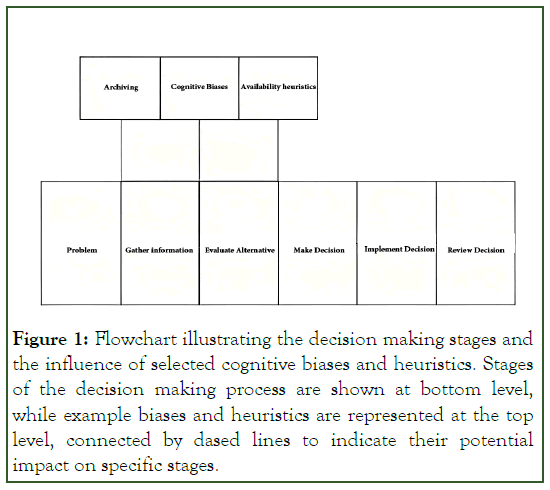
Figure 1: Flowchart illustrating the decision making stages and the influence of selected cognitive biases and heuristics. Stages of the decision making process are shown at bottom level, while example biases and heuristics are represented at the top level, connected by dased lines to indicate their potential impact on specific stages.
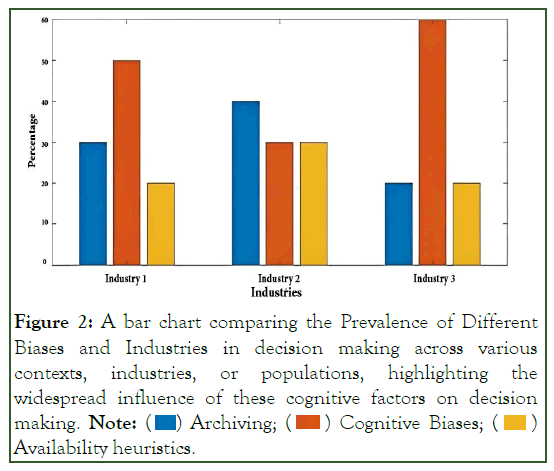
Figure 2: A bar chart comparing the Prevalence of Different
Biases and Industries in decision making across various
contexts, industries, or populations, highlighting the
widespread influence of these cognitive factors on decision
making. Note: ( ) Archiving; (
) Archiving; ( ) Cognitive Biases; (
) Cognitive Biases; ( )
Availability heuristics.
)
Availability heuristics.
Applying the principle to social comparison and self-esteem
Social comparison is a fundamental aspect of human behavior, wherein individuals evaluate their abilities, achievements, and qualities by comparing themselves to others [8]. While social comparison can serve adaptive functions, such as providing information about one's standing in a group or motivating selfimprovement efforts, it can also lead to negative outcomes, particularly when individuals exclusively compare themselves to the most successful or accomplished individuals (the number 1 choice). Such comparisons can result in feelings of inferiority, decreased self-esteem, and reduced life satisfaction [9].
By applying the Principle of Boycotting Number 1s to social comparison processes, individuals can foster a more balanced and realistic perspective on their own abilities and achievements. Instead of focusing solely on those at the top of the hierarchy, individuals can compare themselves to others who are slightly less successful or accomplished (the second or third choices). This approach can help reduce feelings of inadequacy or inferiority, promote more accurate self- assessments, and contribute to increased self-esteem and well-being [10].
In addition, the Principle of Boycotting Number 1s can be employed to improve group dynamics and decision-making. In group settings, a dominant or charismatic individual may disproportionately influence the group's decisions, leading to an overreliance on the number 1 choice [11]. By encouraging group members to consider alternative perspectives and opinions (the second or third choices), the principle can promote more inclusive and democratic decision-making processes within groups. This approach can help minimize groupthink, foster creativity and innovation, and ultimately lead to more effective problem-solving and decision-making outcomes [12]. Furthermore, the Principle of Boycotting Number 1s can be applied to the field of consumer psychology, offering valuable insights into purchasing decisions and the role of marketing in shaping consumer preferences. By examining the impact of choosing the second or third most popular or preferred products, researchers can gain insights into the strategies that can effectively challenge the dominance of established brands and promote greater competition and innovation in the marketplace [13].
In conclusion, the Principle of Boycotting Number 1s can provide valuable insights and benefits in various psychological contexts, from social comparison and self-esteem to group dynamics and consumer psychology. By promoting more balanced perspectives and informed choices, this principle can contribute to improved well-being for individuals and groups, as well as fostering innovation and competition in the marketplace (Figure 3).
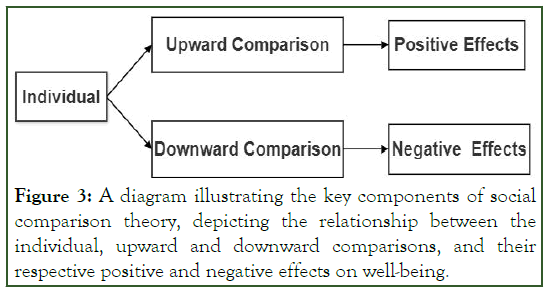
Figure 3: A diagram illustrating the key components of social comparison theory, depicting the relationship between the individual, upward and downward comparisons, and their respective positive and negative effects on well-being.
Enhancing creativity and innovation through the principle of boycotting number 1s
The Principle of Boycotting Number 1s can play a crucial role in fostering creativity and innovation, both at individual and organizational levels. By actively seeking alternatives beyond the most popular or established solutions, individuals and organizations can stimulate novel ideas, challenge conventional wisdom, and ultimately drive the development of groundbreaking products, services, and technologies.
Individual creativity: At the individual level, the Principle of Boycotting Number 1s can be applied to various creative processes, such as brainstorming, problem-solving, and artistic expression. By intentionally avoiding the most obvious or popular choices (the number 1 choice), individuals can challenge themselves to think more critically, explore diverse perspectives, and generate innovative ideas [14]. For instance, in a brainstorming session, individuals can be encouraged to develop and share ideas that diverge from the most popular or established solutions. By promoting the exploration of less conventional alternatives, the Principle of Boycotting Number 1s can facilitate the generation of unique, creative ideas that might otherwise be overlooked [15].
Organizational innovation: At the organizational level, the Principle of Boycotting Number 1s can be employed to foster a culture of innovation and continuous improvement. By challenging established practices and encouraging the exploration of alternative solutions, organizations can create an environment that supports risk-taking, experimentation, and learning [16]. For example, organizations can apply the principle to their decision-making processes by systematically reviewing and considering the second or third most popular options in addition to the most popular or established choice. This approach can help organizations identify hidden opportunities, capitalize on underutilized resources, and ultimately achieve a competitive advantage in the marketplace [17].
Interdisciplinary collaboration: The Principle of Boycotting Number 1s can also be applied to interdisciplinary collaboration, which is increasingly recognized as a key driver of innovation and discovery [18]. By encouraging the integration of diverse perspectives and expertise beyond the most dominant or established disciplines (the number 1 choice), the principle can promote the development of novel, boundary-spanning ideas and solutions. For instance, in the context of scientific research, the Principle of Boycotting Number 1s can be applied to foster collaboration between researchers from different fields, leading to the emergence of innovative, interdisciplinary research questions and methodologies [19].
In conclusion, the Principle of Boycotting Number 1s can significantly enhance creativity and innovation at both individual and organizational levels. By promoting the exploration of alternative options beyond the most popular or established choices, this principle can facilitate the generation of unique ideas, foster a culture of continuous improvement, and ultimately drive groundbreaking advancements in various domains (Figure 4).
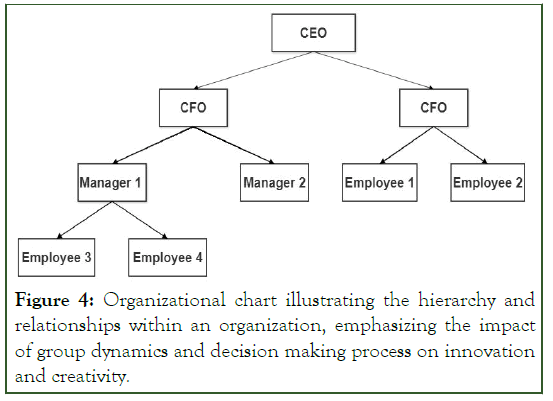
Figure 4: Organizational chart illustrating the hierarchy and relationships within an organization, emphasizing the impact of group dynamics and decision making process on innovation and creativity.
Enhancing personal growth and well-being through the principle of boycotting number 1s
The Principle of Boycotting Number 1s can also contribute significantly to personal growth and well- being. By encouraging individuals to explore alternative options and experiences beyond the most popular or established choices, this principle can facilitate personal development, foster resilience, and enhance overall life satisfaction.
Personal development: Personal development involves the continuous process of self-improvement, encompassing aspects such as self-awareness, goal-setting, skill development, and selfregulation [20]. By applying the Principle of Boycotting Number 1s, individuals can identify unique opportunities for growth that might otherwise be overlooked in favor of more popular or conventional paths. For instance, in the context of career development, the principle can encourage individuals to consider alternative professional paths beyond the most prestigious or lucrative option (the number 1 choice). This approach can help individuals identify meaningful and fulfilling career opportunities that align with their personal values, interests, and strengths [21].
Resilience and adaptability: Resilience refers to the ability to effectively cope with and adapt to adversity, challenges, or significant sources of stress [22]. By promoting the exploration of alternative options and experiences beyond the most popular or established choices, the Principle of Boycotting Number 1s can foster resilience and adaptability in the face of life's challenges. For example, when facing a setback or failure, individuals can apply the principle to identify alternative pathways or strategies to achieve their goals, rather than becoming fixated on the most popular or established approach (the number 1 choice). This flexible mindset can help individuals navigate obstacles and setbacks more effectively, ultimately fostering personal growth and resilience [23].
Life satisfaction and well-being: Life satisfaction refers to an individual's overall evaluation of their life circumstances and experiences [24]. By encouraging individuals to explore and embrace a diverse range of options and experiences beyond the most popular or conventional choices, the Principle of boycotting number 1s can contribute to increased life satisfaction and well-being.
For instance, in the context of leisure activities, individuals can apply the principle to discover new hobbies, interests, or social connections beyond the most popular or mainstream options (the number 1 choice). This approach can help individuals cultivate a more diverse and fulfilling range of experiences, ultimately contributing to enhanced life satisfaction and overall well-being [25].
In conclusion, the Principle of Boycotting Number 1s can play a crucial role in enhancing personal growth and well-being. By promoting the exploration of alternative options and experiences beyond the most popular or established choiceings, this principle can facilitate personal development, foster resilience, and ultimately contribute to increased life satisfaction and overall well-being (Figure 5).
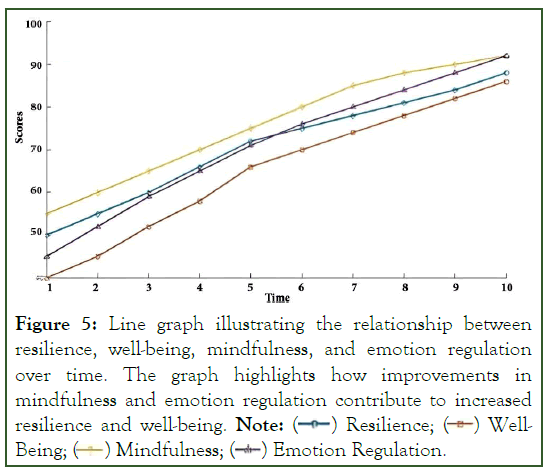
Figure 5:Line graph illustrating the relationship between
resilience, well-being, mindfulness, and emotion regulation
over time. The graph highlights how improvements in
mindfulness and emotion regulation contribute to increased
resilience and well-being. Note: ( ) Resilience; (
) Resilience; ( ) Well-
Being; (
) Well-
Being; ( ) Mindfulness; (
) Mindfulness; ( ) Emotion Regulation.
) Emotion Regulation.
Practical applications and interventions for implementing the principle of boycotting number 1s
The Principle of Boycotting Number 1s has the potential to transform the way individuals approach decision-making and self-improvement. In this section, we will discuss practical applications and interventions that can help individuals implement this principle in their daily lives, promoting more balanced perspectives, improved decision-making and enhanced well-being.
Mindfulness and reflection: Mindfulness, defined as nonjudgmental, present-moment awareness, can be an effective approach for implementing the Principle of Boycotting Number 1s [26]. By cultivating mindfulness, individuals can become more aware of their default tendencies to favor the number 1 choice and consciously direct their attention toward alternative options. Regular mindfulness practice, such as meditation or journaling, can help individuals reflect on their decision-making patterns and identify opportunities to apply the principle in their lives [27].
Cognitive reappraisal: Cognitive reappraisal is a cognitive emotion regulation strategy that involves changing one's interpretation of a situation to alter its emotional impact [28]. Individuals can use cognitive reappraisal to challenge their automatic preference for number 1 choices by considering alternative perspectives and recognizing the potential benefits of exploring other options. For example, when faced with a decision, individuals can reframe the situation by asking themselves questions such as, "What are the potential advantages of choosing the second or third option?" or "How might this alternative choice contribute to my personal growth and well-being?"
Goal setting and decision making: Individuals can apply the Principle of Boycotting Number 1s when setting personal goals and making decisions. By consciously considering the second or third best options, individuals can identify unique opportunities for growth and development that might otherwise be overlooked. One approach is to use a decision matrix, a tool that helps compare multiple options based on specific criteria [29]. This method allows individuals to evaluate options beyond the most prominent choice, promoting more balanced and informed decision-making.
Social support and group interventions: The principle of Boycotting Number 1s can be integrated into group interventions and social support systems. Encouraging individuals to share their experiences and perspectives on implementing the principle can foster collective learning and promote more inclusive decision-making within groups. For instance, group therapy or support group settings can integrate discussions on applying the principle in various aspects of participants' lives, such as career development, relationships, and personal well-being.
Educational programs and public awareness: Raising public awareness about the principle of Boycotting Number 1s and its potential benefits can promote broader adoption of this approach. Educational programs and workshops can be developed to teach individuals about the principle and provide practical strategies for implementing it in various aspects of their lives. Additionally, public awareness campaigns can emphasize the importance of considering alternative options and challenging the status quo in decision-making processes.
In conclusion, the principle of Boycotting Number 1s has numerous practical applications and interventions that can help individuals implement this transformative approach to decisionmaking and personal growth. By incorporating mindfulness, cognitive reappraisal, goal-setting, social support, and educational programs, individuals and society as a whole can benefit from the improved decision- making, personal development, and well-being that this principle promotes.
Potential limitations and future directions for the principle of boycotting number 1s
While the principle of Boycotting Number 1s offers numerous potential benefits for decision-making and personal growth, it is important to acknowledge its potential limitations and consider future directions for research and application.
Contextual factors: The effectiveness of the principle of Boycotting Number 1s may be influenced by contextual factors, such as individual preferences, cultural norms, and situational constraints. In some cases, the number 1 choice might indeed be the most suitable option for an individual, based on their specific needs and circumstances. Further research is needed to explore how the principle can be adapted and applied across diverse contexts and populations.
Moderation and balance: Although the principle of Boycotting Number 1s encourages individuals to consider alternative options, it is essential to strike a balance between exploring new possibilities and recognizing the value of established choices. Excessive reliance on this principle may lead to unnecessary contrarianism or decision fatigue. Future research should investigate the optimal degree of application and potential moderating factors to maximize the benefits of this approach.
Integration with existing decision-making frameworks: The Principle of Boycotting Number 1s can be integrated with existing decision-making frameworks and theories to develop more comprehensive and effective strategies for personal growth and well-being. Future research should explore how this principle can be combined with other established approaches, such as multi-criteria decision analysis or the adaptive decisionmaker framework, to further enhance decision-making processes.
Longitudinal effects and sustainability: The long-term effects and sustainability of implementing the Principle of Boycotting Number 1s remain largely unexplored. Future research should examine the potential long-term consequences of applying this principle on individuals' well-being, resilience, and overall life satisfaction. Additionally, studies should investigate the factors that contribute to the successful adoption and maintenance of this principle over time.
In conclusion, the Principle of Boycotting Number 1s offers a novel approach to decision-making and personal growth, with the potential to transform individuals' perspectives and enhance well-being. While there are potential limitations and areas for future research, the principle holds promise as a valuable tool for fostering more balanced decision- making, personal development, and overall life satisfaction (Figure 6).
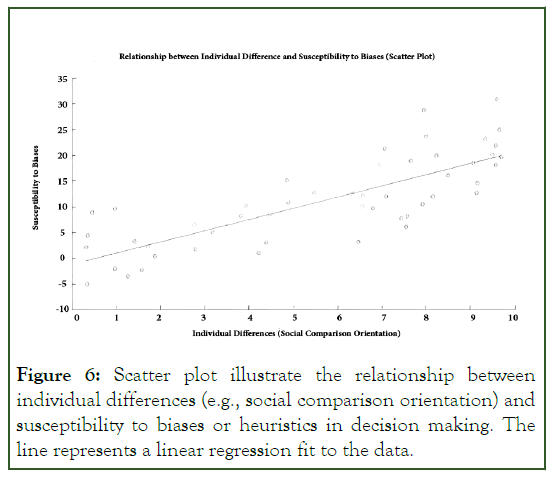
Figure 6: Scatter plot illustrate the relationship between individual differences (e.g., social comparison orientation) and susceptibility to biases or heuristics in decision making. The line represents a linear regression fit to the data.
Conclusion
The Principle of Boycotting Number 1s presents an innovative approach to decision-making, personal growth, and well-being. By challenging the default preference for the most popular or conventional choice, this principle encourages individuals to explore alternative options and experiences, leading to more informed decision-making, enhanced personal development, and increased life satisfaction. Through its applications in various domains, such as career choices, relationships, leisure activities, and consumer behavior, the Principle of Boycotting Number 1s demonstrates its potential to foster more balanced perspectives and diverse experiences. Furthermore, the principle can contribute to personal growth and well-being by facilitating personal development, resilience, and adaptability.
Practical applications and interventions, such as mindfulness, cognitive reappraisal, goal-setting, social support, and educational programs, can help individuals effectively implement this principle in their daily lives. While there are potential limitations and areas for future research, the Principle of Boycotting Number 1s holds significant promise as a valuable tool for fostering more balanced decision-making, personal growth, and overall well-being. Ultimately, embracing the Principle of Boycotting Number 1s can empower individuals to challenge the status quo, pursue unique paths, and cultivate a richer, more fulfilling life experience. As society continues to evolve and new opportunities emerge, this principle can serve as a guiding force for those seeking to maximize their potential, enhance their well-being, and make a meaningful impact on the world around them.
References
- Farshi E. The Principle of Boycotting Number 1s: Enhancing Decision-Making Diversity and Balancing Market Power in a Complex World. 2023.
- Watson K. D. Kahneman.(2011). Thinking, Fast and Slow. New York, NY: Farrar, Straus and Giroux. 499 pages. Can J Program Eval. 2011;26(2):111-113.
- Tversky A, Kahneman D. Judgment under Uncertainty: Heuristics and Biases: Biases in judgments reveal some heuristics of thinking under uncertainty. Science. 1974;185(4157):1124-1131.
- Dai J, Busemeyer JR. A probabilistic, dynamic, and attribute-wise model of intertemporal choice. J Exp Psychol. 2014;143(4):1489.
- Tversky A, Kahneman D. Availability: A heuristic for judging frequency and probability. Cogn Psychol. 1973;5(2):207-232.
- Lichtenstein S, Slovic P. The construction of preference: An overview. The construction of preference. 2006;1-40.
- Nickerson RS. Confirmation bias: A ubiquitous phenomenon in many guises. Rev Gen Psychol. 1998;2(2):175-220.
- Lilienfeld SO, Ammirati R, Landfield K. Giving debiasing away: Can psychological research on correcting cognitive errors promote human welfare?. Perspect Psychol Sci. 2009;4(4):390-298.
- Festinger L. A theory of social comparison processes. Hum Relat. 1954;7(2):117-40.
- Gibbons FX, Buunk BP. Individual differences in social comparison: development of a scale of social comparison orientation. J Pers Soc Psychol. 1999;76(1):129.
- Taylor SE, Lobel M. Social comparison activity under threat: downward evaluation and upward contacts. Psychol Rev. 1989;96(4):569.
- Janis IL. Victims of groupthink: A psychological study of foreign-policy decisions and fiascoes. Boston, MA: Houghton Mifflin. 1972.
- Nemeth CJ. Differential contributions of majority and minority influence. Psychol Rev. 1986;93(1):23.
- Paulus PB, Nijstad BA, editors. Group creativity: Innovation through collaboration. Oxford University Press. 2003.
- Osborn AF. Applied imagination: Principles and procedures of creative problem- solving. New York, NY: Charles Scribner's Sons. 1953.
- Amabile T M. How to kill creativity. Harv Bus Rev. 1988;76(5):77-87.
- Christensen CM. The innovator's dilemma: When new technologies cause great firms to fail. Boston, MA: Harvard Business School Press. 1997.
- Stokols D, Hall KL, Taylor BK, Moser RP. The science of team science: overview of the field and introduction to the supplement. Am J Prev Med. 2008;35(2):S77-S89.
- Rosenfield PL. The social psychological effects of group decision rules. In P. J. D. Paulus, Psychology of group influence. Hillsdale, NJ: Lawrence Erlbaum Associates. 1992.
- Bandura A. Social foundations of thought and action. Englewood Cliffs, NJ. 1986.
- Savickas ML. Career construction: A developmental theory of vocational behavior. In D. Brown, Career choice and development. San Francisco, CA: Jossey-Bass. 2002.
- Masten AS. Ordinary magic: Resilience processes in development. Am Psychol. 2001;56(3):227.
- Luthar SS, Cicchetti D, Becker B. The construct of resilience: A critical evaluation and guidelines for future work. Child development. 2000;71(3):543-62.
- Diener E. Subjective well-being. Psychological bulletin. 1984;95(3):542.
- Ryan RM, Deci EL. On happiness and human potentials: A review of research on hedonic and eudaimonic well-being. Annu Rev Psychol. 2001;52(1):141-66.
- Kabat-Zinn J. Wherever you go, there you are: Mindfulness meditation in everyday life. New York, NY: Hyperion. 1994.
- Brown KW, Ryan RM. The benefits of being present: mindfulness and its role in psychological well-being. J Pers Soc Psychol. 2003;84(4):822.
- Gross JJ. The emerging field of emotion regulation: An integrative review. Rev Gen Psychol. 1998;2(3):271-99.
- Nutt PC. Surprising but true: Half the decisions in organizations fail. Acad Manag Perspec. 1999;13(4):75-90.
Citation: Farshi E, Ghorbanpour F, Keser S (2023) Challenging the Status Quo: Unraveling Hidden Dynamics in Psychological Decision-Making. J Psychia. 26:614.
Copyright: © 2023 Farshi E, et al. This is an open-access article distributed under the terms of the Creative Commons Attribution License, which permits unrestricted use, distribution, and reproduction in any medium, provided the original author and source are credited.

